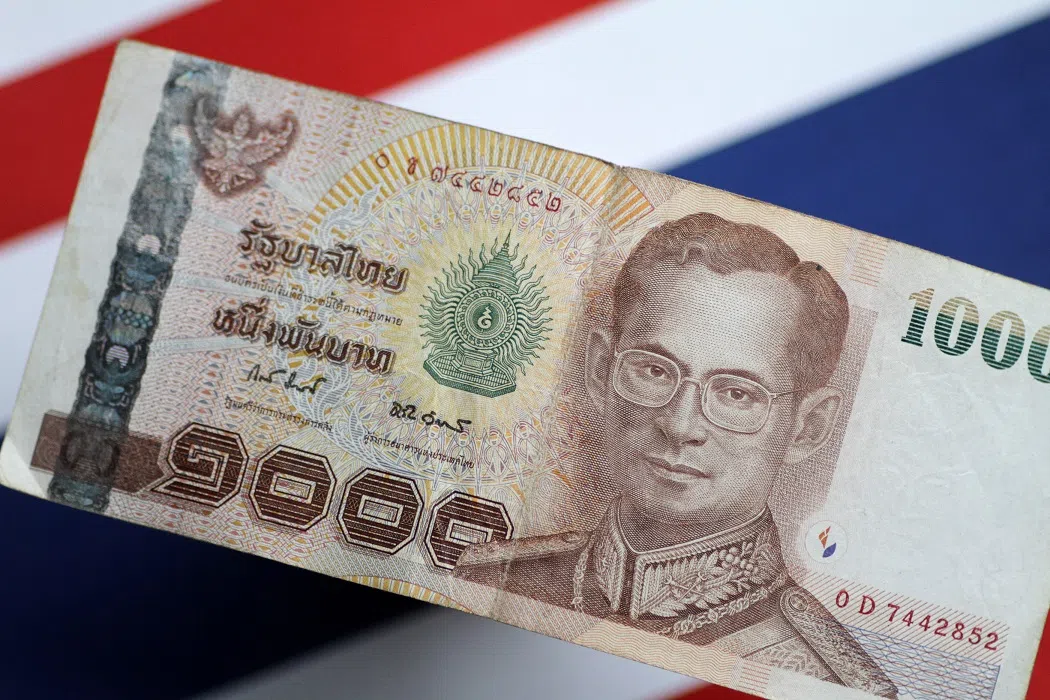The baht gained to its strongest level in 30 months as China’s stimulus boosted risk assets globally, adding pressure on the Bank of Thailand to act to curb its rally.
The currency rose as much as 0.8 per cent against the dollar to 32.56 on Wednesday (Sep 25), a level last seen in March 2022. Robust inflows into equities and bonds are also boosting sentiment, with the benchmark stock index near a one-year high.
China’s stimulus bazooka is adding fuel to the rally in Asian currencies this quarter, with the baht’s 12 per cent surge the biggest after the ringgit. Its rapid rise is hurting exporters by eroding their trade competitiveness, prompting calls for the central bank to intervene and cut interest rates to shield exports and tourism – two pillars of Thailand’s US$500 billion economy.
“The topic of strong baht is already on the agenda of policymakers,” said Christopher Wong, a currency strategist at Oversea-Chinese Banking Corp in Singapore. “But if a weak dollar is the dominant trend, then the measures may not be as forthcoming. At this point, it is likely they may wait and watch, but we cannot rule out any responses.”
The Bank of Thailand is closely monitoring the baht and stands ready to deal with any abnormal swings that may impact businesses and the economy, assistant governor Pimpan Charoenkwan said on Wednesday. Finance Minister Pichai Chunhavajira and BOT governor Sethaput Suthiwartnarueput are scheduled to hold talks next week and the baht’s strength will be on the agenda. Officials are scheduled to decide on rates in October.
Global funds poured over US$400 million into Thai bonds in September, the third straight month of net foreign inflows, according to data compiled by Bloomberg. They bought about US$1 billion of local equities during the period – the first net inflow in five months – as the government’s plan to revive the local market with a new fund-subscription offer partly boosted stocks. BLOOMBERG






